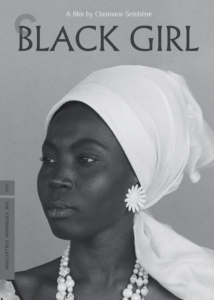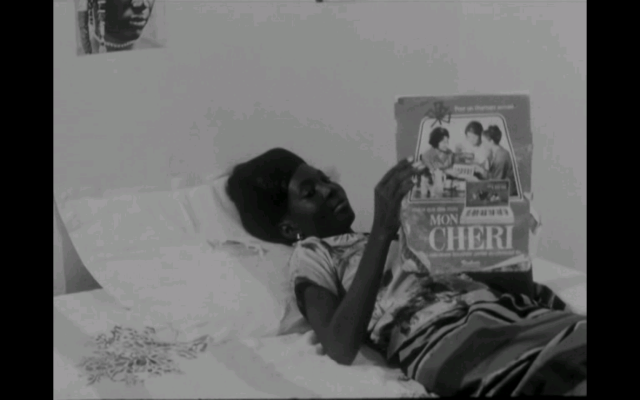Black Girl/La Noire de… (1966)
“Why am I here? Am I a nursery maid or a housemaid?”
|
Synopsis: |
|
Genres, Themes, Actors, and Directors:
Response to Peary’s Review: The majority of scenes in this hour-long film — “adapted from Sembene’s 1961 short story about a real-life tragedy” — seem scripted merely to show us how unjust Diop’s situation is, which we understand and sympathize with right away; from there, not much happens, and we’re not given nearly enough insight into the motivations or backgrounds of either Diouana (Diop) or her bigoted employers to care about them as three-dimensional characters. While we can sense and appreciate Sembene’s deeper thematic concerns — Peary notes that his “films are intended to show the problems of his people… [who] are susceptible to falling into the same trap as [Diouana]” — he fails to effectively bring them to the surface, instead relying far too heavily on Diouana’s rather repetitive voiceover. With that said, it’s fitting that this film — which is undeniably groundbreaking on several levels — won the Prix Jean Vigo, an award usually given to a young director, for his or her independent spirit. Redeeming Qualities and Moments: Must See? Categories
Links: |


One thought on “Black Girl/La Noire de… (1966)”
First viewing. Not a must – for reasons spelled-out in the astute assessment.
This film is, indeed, a “chore” to watch – that’s certainly not due to the storyline, but to the fact that the film seems to mostly just sit there. There is a noticeable artlessness to the filmmaking overall (agreed: much like a student film).
What’s most peculiar is that the central performance by Diop comes with what appears to be an inner strength, making the character’s ultimate decision puzzling.
This is the second of Sembene’s films that I’ve now seen. As difficult as ‘Mandabi’ also was to get through, I can at least see where ffs would benefit by seeing that as a representative work.